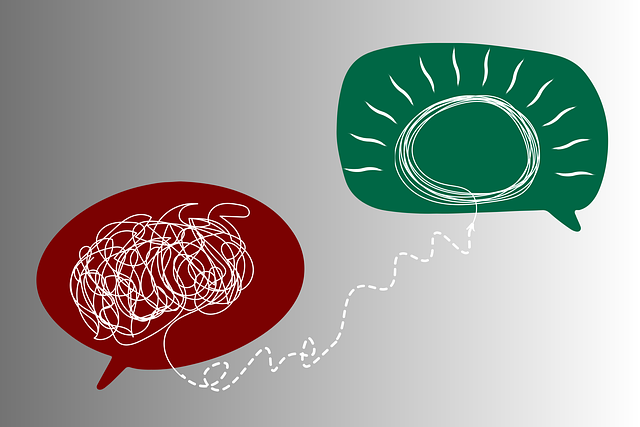Littleton Divorce Therapy introduces the RFM model (Recovery, Flexibility, Mastery) to build mental resilience post-divorce. This structured yet personalized approach combines self-reflection, emotional awareness, mindfulness, and goal setting to enhance well-being. Through tailored exercises, clients develop coping mechanisms, stress management skills, and inner strength to navigate life's challenges, focusing on self-care and emotional healing for long-term mental wellness.
“Discover how the powerful tool of RFM (Recovery, Flexibility, and Mastery) can transform resilience building in post-divorce therapy. This article explores the integration of RFM with the Littleton Divorce Therapy framework, offering a structured approach to enhance clients’ coping abilities. We’ll delve into the benefits of implementing these exercises, highlighting their impact on improving adjustment and well-being post-divorce. By understanding RFM’s role, therapists can guide individuals toward navigating life transitions with increased resilience.”
- Understanding RFM and Its Role in Resilience Building
- Implementing resilience exercises: A step-by-step guide for therapists using Littleton Divorce Therapy framework
- The Impact of RFM on Post-Divorce Adjustment and Well-being
Understanding RFM and Its Role in Resilience Building

Resilience is a vital component of overall mental wellness, enabling individuals to navigate life’s challenges and adapt to change. This is where RFM (Recovery, Flexibility, and Mastery) comes into play, offering a structured framework for building resilience. The RFM model, often utilized in settings like Littleton Divorce Therapy, focuses on three key areas: recovery from setbacks, cultivating flexibility in the face of adversity, and fostering a sense of mastery over one’s life.
By participating in confidence-boosting exercises that promote stress management, individuals learn to regulate their emotions and maintain a positive outlook during difficult times. These workshops, organized by mental wellness advocates, provide practical tools and strategies to enhance resilience. Through this process, people can develop the psychological strength needed to overcome personal challenges and thrive in various aspects of life.
Implementing resilience exercises: A step-by-step guide for therapists using Littleton Divorce Therapy framework

Implementing resilience exercises is a powerful tool for therapists aiming to support clients in cultivating mental fortitude using the Littleton Divorce Therapy framework. This step-by-step guide emphasizes the importance of structured, yet personalized approaches to enhance clients’ coping mechanisms and promote self-care.
Commence by assessing the client’s current emotional state and identifying areas where resilience can be strengthened. Tailor exercises that encourage self-reflection and emotional awareness, fostering a deeper understanding of their feelings and triggers. Subsequently, introduce activities focused on self-esteem improvement, such as positive affirmations or achievement goals, to boost confidence and resilience. Encourage clients to develop consistent self-care routines for stress management, including mindfulness practices, physical activity, and healthy sleep habits, thereby mitigating the risk of burnout. Regularly monitor progress, adjusting exercises as needed, to ensure clients remain engaged and derive maximum benefit from the process.
The Impact of RFM on Post-Divorce Adjustment and Well-being

After a divorce, individuals often face significant adjustments and challenges that can impact their overall well-being. Here, the Role of Emotional Support and Mindfulness (RFM) steps in as a powerful tool to navigate this transition period. By focusing on self-care and emotional resilience, RFM helps individuals rebuild their lives post-divorce, fostering better mental health and improved coping mechanisms.
Littleton Divorce Therapy emphasizes the importance of these exercises in preventing burnout among recently divorced persons. The implementation of communication strategies and mindfulness meditation techniques within RFM can significantly enhance one’s ability to manage stress and anxiety. This is particularly crucial for healthcare providers who often bear the brunt of emotional labor during and after divorce, making Burnout Prevention Strategies for Healthcare Providers a key aspect of holistic healing. Effective communication and self-awareness cultivated through RFM enable individuals to express their feelings, process trauma, and cultivate inner peace, ultimately contributing to long-term well-being.
Resilience is a key factor in navigating the complexities of divorce, and integrating RFM (Recovery, Flexibility, and Mastery) principles through practices like those outlined in the Littleton Divorce Therapy framework can significantly enhance post-divorce adjustment and well-being. By following a structured, compassionate approach, therapists can empower individuals to build resilience, adapt to change, and ultimately foster a sense of mastery over their lives post-divorce. This evidence-based methodology promises to revolutionize support systems for those facing divorce, ensuring they are equipped to thrive in the face of life’s challenges.












